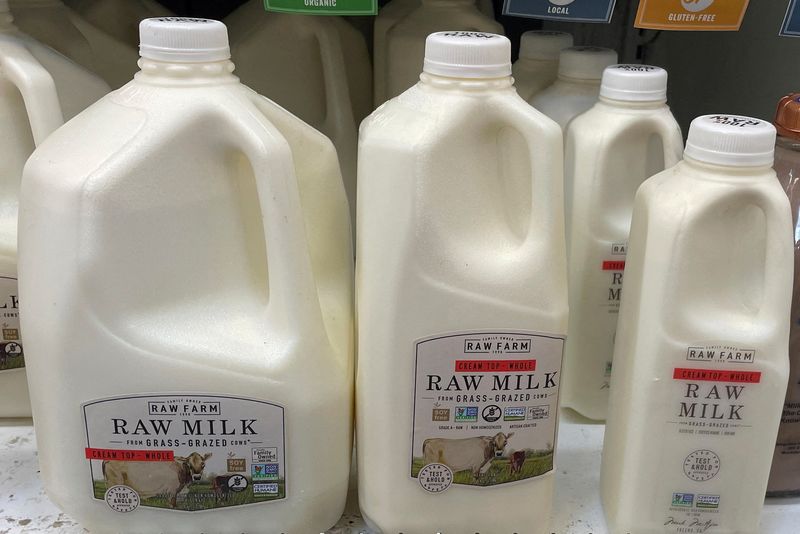(Reuters) – Feeding raw milk contaminated with bird flu to mice infected them with the virus, adding to evidence that consumption of unpasteurized milk is not safe for humans, according to a study published on Friday in the New England Journal of Medicine.
Bird flu has caused serious or fatal infections globally among people in close contact with infected wild birds or poultry, and scientists have long viewed the virus as being capable of causing a global health crisis.
U.S. officials this week said that a second human infectionhad been confirmed in a Michigan dairy worker after the bird flu virus was first detected in dairy cattle in late March. Both workers’ symptoms were limited to conjunctivitis, or pink eye.
In the study, researchers from the University of Wisconsin-Madison and Texas A&M Veterinary Medical Diagnostic Laboratory fed droplets of raw milk from infected dairy cattle to five mice.
The researchers said the mice showed signs of illness, including lethargy, on the first day. They identified high levels of virus in the animals’ nasal passages, trachea and lungs and moderate-to-low virus levels in other organs, consistent with bird flu infections found in other mammals.
Most U.S. milk is pasteurized, but 30 U.S. states permit the sale of raw milk, which accounts for less than 1% of nationwide sales. A nationwide survey of pasteurized milk – heated to kill pathogens – found bird flu virus particles in about 20% of samples tested.
The study also found that levels of the bird flu virus fell slowly in raw milk stored at refrigeration temperatures.

The National Institute of Allergy and Infectious Diseases, part of the U.S. National Institutes of Health, funded the study.
The U.S. Food and Drug Administration has advised against drinking raw milk and U.S. officials have asked dairy farms to pasteurize milk that is being discarded.

